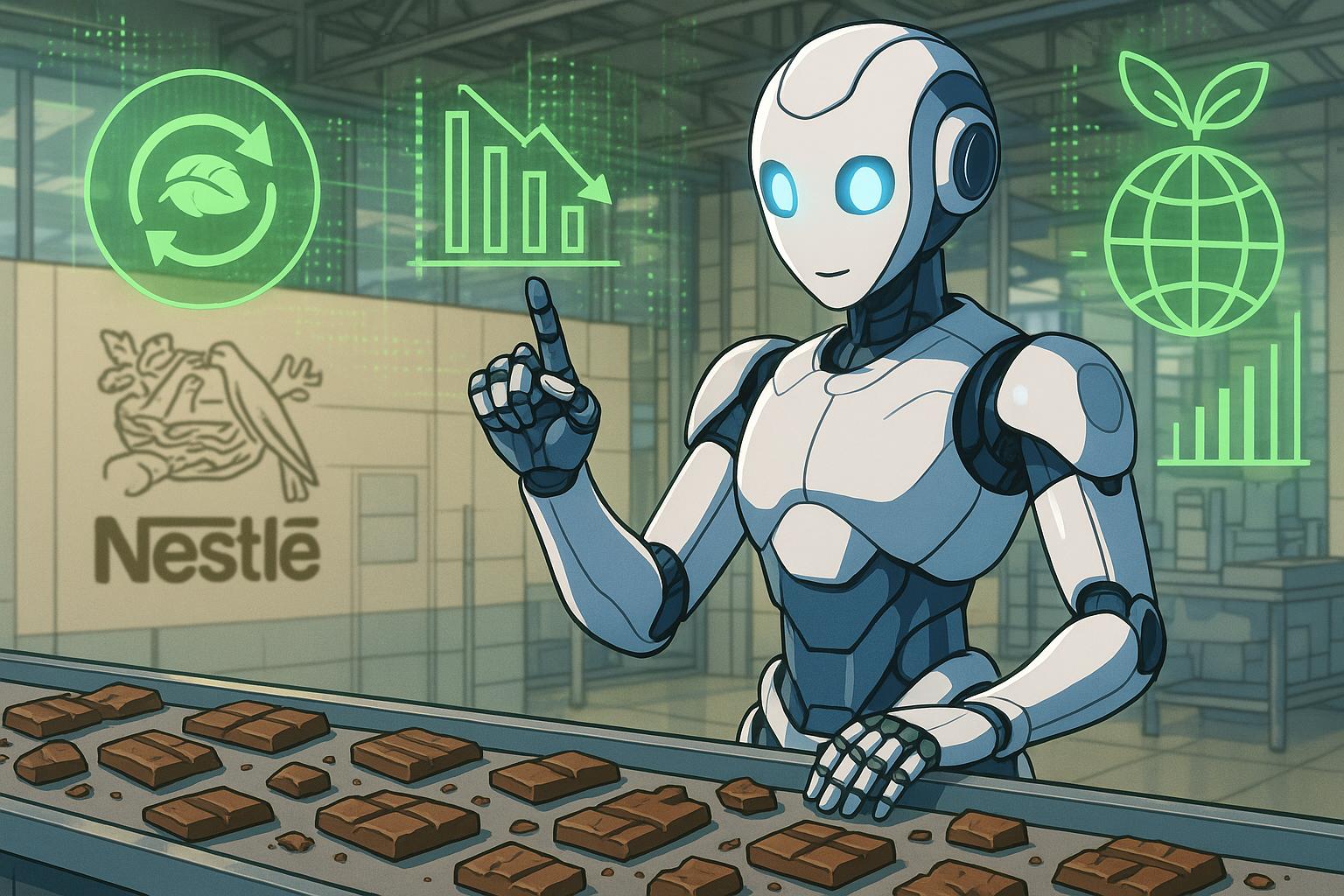The trial of an innovative artificial intelligence tool across several UK food companies, including Nestlé, is set to transform the handling of edible food waste. The AI system, developed by Zest, has already demonstrated remarkable results, achieving an 87% reduction in food waste at one of Nestlé’s factories during its initial two-week trial. This significant decrease indicates the potential of AI to dramatically reshape waste management practices in the food industry.
According to the announcement from Nestlé, the pilot initiative could facilitate the redistribution of up to 700 tonnes of surplus food, equivalent to roughly 1.5 million meals. Additionally, this project is expected to prevent approximately 1,400 tonnes of CO2 emissions, leading to an estimated £14 million in cost savings across operations. The AI tool primarily targets edible food that is deemed unprofitable for sale, such as damaged products or those with short shelf lives—often referred to as "broken" items, including imperfect chocolate bars.
The opportunity for such technological innovations comes against the backdrop of alarming statistics: the UK wastes around 4.6 million tonnes of edible food each year, amounting to over 10 billion meals. This waste not only represents a significant loss of resources but also contributes to environmental degradation through unnecessary carbon emissions. Simon Millard, director of food at FareShare, highlighted that such technologies "would make a huge difference" in their efforts to redistribute food to a network of over 8,000 charities and community groups across the country.
The current pilot has gained further momentum through funding from Innovate UK’s BridgeAI scheme, which has allocated a match-funded grant of £1.9 million for AI projects. Esra Kasapoglu, director of AI and data economy at the agency, emphasised that the project could revolutionise food sourcing and distribution in the UK by enhancing sustainability while also lowering operational costs.
As the initiative progresses, there is potential for the Zest software to be rolled out across the broader food supply chain by March next year, enabling a subscription-based model that could further expand its impact. This aligns with a growing trend in the food industry, where companies increasingly seek AI-driven solutions to streamline operations and reduce waste. For instance, Walmart has successfully implemented AI in various facets of its operations, from demand forecasting to enhancing customer service, exemplifying the broader shift towards utilising technology in the struggle against food waste.
Furthermore, Nestlé is not only focused on cutting down food waste through AI initiatives but is also exploring other sustainable practices through new pilot projects, such as producing low-carbon fertiliser from cocoa shells. This trial at Nestlé’s York site aims to evaluate the potential benefits of using food byproducts in agriculture, thereby actively contributing to broader goals of reducing greenhouse gas emissions and supporting regenerative agricultural methods.
The intersection of AI technology and sustainability illustrated by these initiatives signifies a hopeful step toward addressing the persistent issue of food waste. By fostering intelligent systems that not only streamline operations but also encourage responsible food management, the food industry may significantly contribute to realistic environmental goals in the near future.
Source: Noah Wire Services
